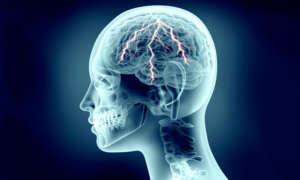“Love is powerful, scary, amazing–there are so many words to describe it. Once we have fallen in love we are forever changed.”
–Rose Caiola
The Neuroscience Of Love
Love, put simply, is a maddening emotion that often holds our hearts hostage and has the power to make or break our lives. But, in reality, it’s actually a bit more complicated than that. In many ways, love is a motivating drive that is necessary for our overall survival. It makes us flock together and work in unison for common and mutually beneficial goals, which is great because it’s much easier to attain financial stability, raise children and go through life when we don’t have to do it on our own. And, falling in love changes us in profound ways.
 Think about the people in your life who are currently in love with their partners. Are they the same people they were before they found their soul mates and subsequent bliss? Probably not. That’s because, as many of you undoubtedly already know, falling in love literally alters our brains, as do all novel and impactful experiences. Though we may think that it’s a long process that has to do with bonding and attachment, it’s actually a fairly quick phenomenon that is now being studied in a new way.
Think about the people in your life who are currently in love with their partners. Are they the same people they were before they found their soul mates and subsequent bliss? Probably not. That’s because, as many of you undoubtedly already know, falling in love literally alters our brains, as do all novel and impactful experiences. Though we may think that it’s a long process that has to do with bonding and attachment, it’s actually a fairly quick phenomenon that is now being studied in a new way.
In one of the preliminary studies linking brain activity and romantic love, published in the Journal of Neurophysiology, participants were shown a photograph of their partners, and asked to think about romantic activities they enjoyed together while they were being monitored via functional MRI. These romantic activities could not involve sexual intimacy, as that would activate a different part of the brain.
Then, researchers asked participants to count backward from some set number to get their vitals back to neutral. The control used for the experiments was a picture of someone for whom participants had no romantic feelings, like their doorman. The clear distinction in the results is fascinating. When stimulated by a photo of a romantic partner, the human brain grows active.
 However, until a 2015 research study, published in Frontiers of Human Neuroscience, no one knew how love changes the brain when it’s not being stimulated. Again using an MRI, researchers studied three different groups of individuals: those currently intensely in love; those who had recently ended a close romantic relationship and were no longer in love; and a single group made up of individuals who had never been in love. The results showed that those who have been in love engage in behaviors that protect and reinforce their relationships, unlike those who haven’t been in love.
However, until a 2015 research study, published in Frontiers of Human Neuroscience, no one knew how love changes the brain when it’s not being stimulated. Again using an MRI, researchers studied three different groups of individuals: those currently intensely in love; those who had recently ended a close romantic relationship and were no longer in love; and a single group made up of individuals who had never been in love. The results showed that those who have been in love engage in behaviors that protect and reinforce their relationships, unlike those who haven’t been in love.
Based on this data, the researchers explain, “This study provides the first empirical evidence of love-related alterations in the underlying functional architecture of the brain…These results shed light on the underlying neurophysiological mechanisms of romantic love by investigating intrinsic brain activity, and demonstrate the possibility of applying a resting state approach for investigating romantic love.”
Though some of us may fall in and out of love, there’s no denying that after we’ve experienced it – if only once in our lifetimes – it permanently rewires our brains in some incredible way. And if it makes us more cooperative, protective and productive, it’s better to have loved and lost, than never to have loved at all.

